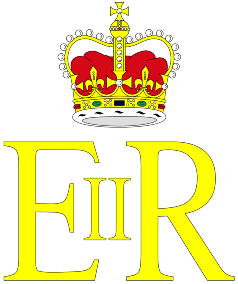A versatile blogger? What, me? So it would seem - at least, in the view of my old mate
Uncle Skip. Well, he was a mate until he foisted this damned award on me, the Versatile Blogger Award. I have known Skip for several years, even met up face to face on more than one occasion, so I have come to realise that he is possessed of what many would describe as a warped sense of humour (although, being American, he would spell that as humor). He has something of the Humpty Dumpty about him. No, he's not ovoid in shape, nor does he, as far as I am aware, make a habit of sitting on walls. It's more that when he uses a word "it means just what he chooses it to mean — neither more nor less", as H-D said. To quote Antoine de Saint-Exupery, "Language is the source of misunderstandings", so I thought it advisable to check Webster's dictionary (Webster's rather than the Oxford as we are dealing here with an American). According to the book of words, ‘versatile' has a number of similar but different meanings:
1. changing or fluctuating readily : variable
2. embracing a variety of subjects, fields, or skills; also : turning with ease from one thing to another
3. a (1) : capable of turning forward or backward : reversible
(2) : capable of moving laterally and up and down
b of an anther : having the filaments attached at or near the middle so as to swing freely
4. having many uses or applications
Which particular meaning, I asked myself, did Skip have in mind? But then I thought of another factor in the equation: Skip claims to be of Irish descent. Now, any true-blue red-blooded Englishman like what I am knows full well that what an Irishman says does not necessarily mean what an Englishman thinks it means so it is quite possible that in describing me as a versatile blogger my Californian Irish friend was not complimenting me on my ability to waffle on a wide range of themes but was in fact insulting me by implying that I talk a lot of tosh.
No, Skip's not like that: he meant it as a compliment. I think. So, Skip, thank you.
If I am to accept this award (I stress the word ‘if') it seems there are rules I must follow.
1. Thank the person who gave you the award and link back to them in your post.
2. Tell us seven things about yourself.
3. Award 7 recently discovered new bloggers.
4. Contact these bloggers and let them know they've received the award.
(I copied these from
Sweet Pea's blog and increased the size of the font especially for
Uncle Skip and
Suldog, both of whom seem to be blissfully unaware that one can do these things quite simply.)
OK, then, here we go.
1. Thank you, Skip. Oh, I've already done that - and you'll find at least one link higher up.
2. Fact 1 - I'm a Man of Kent, not a Kentish Man.
[Explanation here.] Fact 2 - I have conversed with both the Queen and the Duke of Edinburgh.
[Yes, really! It's told right here.] Fact 3 - I was at Oxford University.
[Read the story here.] Fact 4 - I haven't the foggiest idea what masochistic tendency lurking inside me forces me to write something on this blog every single day - except, of course, for the days when I don't.
Fact 5 - I'm an anti-social so-and-so as I still smoke. Well, we all die of something and I reckon I may as well die partly happy.
Fact 6 - I enjoy a glass (or two) of wine with my evening meal and an occasional drop of Scotch but I don't drink beer.
Fact 7 - I'm even older than Skip - and that's saying something!
This is where I have a little difficulty, a problem. No, it's not a challenge, it's A Problem. You see, I spend little time surfing through other people's blogs because there's just too much else to be done. I would like to, I really would, but there it is, I don't have the time. (Some people would say that I do have a life.) So, I am in something of a quandary. On to whom do I pass this wretched thing? Most of the blogs I frequent are shown in the side bar and, as you can see, a lot of them are of the daily photo kind. Those are not quite the sorts for whom this Versatile Blogger award is intended. Of the ones I have only recently discovered (like
The Broad or
Moannie) have either received this award already or are people whom I don't know well enough to pass it on to. (By the way, do drop in on those two - their blogs are full of interest.) The only one I can think of who is both deserving of this prestigious honour and probably of a mind to accept it in the spirit intended is
#1Nana.
I suppose that means I have failed miserably and will have to decline the award.
Quel dommage, as they say in France.
Oh yes, the award. This is what it looks like:

PS Another blog I like is
Project Pine, partly because she's a good-looking young lady.


















